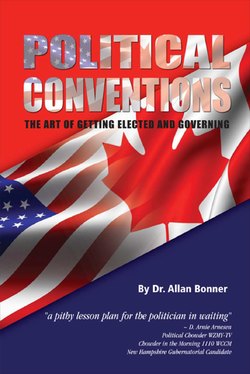Читать книгу Political Conventions - Allan Bonner - Страница 4
На сайте Литреса книга снята с продажи.
Introduction
ОглавлениеIn this introduction, I proclaim my admiration for America. I don’t want any of my observations about the American political process or conventions to be misunderstood. There are two legitimate schools of thought about America. One is that it is a democratic country grappling with the mechanics of liberty, like the dozen or so others with a long history of democracy and the several dozen emerging democracies with a less free history. The other school of thought is so-called “American exceptionalism”—a doctrine that says America is unique in world history and the first, best, longest-lasting and freest system.
I’m in the first category, but that doesn’t lessen my respect for the American experience. In fact, in order to make a more perfect Union, that Union should be examined constantly. Examination includes comparing the rules and traditions of that Union with others. This examination, and the resulting evolution, has been going on ever since America began. There was a lively debate in the streets and in the Federalist Papers about the miracle in Philadelphia—the US Constitution. Continuing to examine the American experience and compare it to the experience of others is healthy and a compliment in itself.
My admiration extends to the intellectual history that exists in America. England, Scotland, Ireland, France and Germany certainly have it, but I regret to say that my country does not. Persia, India and China have longer intellectual histories, but they do not draw on European enlightenment or focus on individual liberties. Canadians, like Americans, drew on freedoms handed down to us by the French and British, but we haven’t explored, built on and sought to perfect those traditions as much as Americans have.
My admiration for the US is not unreserved and does not come at the expense of my good feelings for Canada. My reservations involve matters that Americans discuss regularly: distrust of government has created a tradition of pro forma criticism of government in general and Washington, D.C. in particular; wanting checks on their government, Americans all but hobbled it; the Byzantine structure that resulted creates opportunities for abuse; “earmarks,” by which individual politicians add local frivolous spending to an important bill, are wasteful and often unethical; presidential signing orders which tell the bureaucracy how to interpret legislation amount to an advance veto or de facto court rulings from the Executive Branch.
This political season has shown us how complex the US electoral system is. The American Supreme Court has ruled that political parties are pretty much free to run their affairs they way they want to. A result is that the two parties pick their leaders in substantially different ways, with different numbers of delegates and super-delegates. Delegates are counted differently in different states and differently for each party. One can shrug and say, “That’s democracy” or “Democracy is messy,” but there’s another point: If the two parties put up candidates for public scrutiny who have attained their offices by substantially different paths, the voters are choosing between apples and oranges.
Similarly, the Electoral College can be viewed as a useful weighting system to ensure the smaller states are not ignored, or it can be seen as interfering with the concept of “one person, one vote” and setting up a barrier between voters and their chosen candidates. Ironically, the “winner-take-all” feature that awards all the electoral votes for any one state to a single candidate has led to modern elections in which one state—Illinois in 1960 or Florida in 2000—seems to decide the whole national contest: hardly what the founding fathers intended.
But certainly America has achieved a level of local self-rule that we lack in Canada. Our prime minister doesn’t have the checks and oversight on the office that a US president has. Our members of parliament and even our regional caucuses don’t have the influence of a senator or representative. Realistically, our MPs can’t initiate a bill of substance. They must vote with the party, and for the most part, their committee work lacks influence. Our senate often does excellent committee work and may send the occasional member to cabinet, but in practice it has no power to veto legislation sponsored by the government. Perhaps that’s a good thing, because, if one believes in representation by population, even the American senate is a violation, as is our appointed upper chamber.
The closest we come to legitimate states’ rights is in some of our first ministers’ conferences, where our premiers may serve as a legitimate check on federal powers. This, however, is not required by our constitution, but is personality- and issue-driven. If a conference isn’t called, or strong premiers are not in power at the time, the forum is ineffective. Our mayors also lack the power of their American counterparts, even though several of our cities are more populous than some of our provinces.
It is my hope that this political season will be one in which examination of the US political system leads to change. Nearly 40 million Americans watched the speeches by each party’s nominee, and 100 million watched the debates or post-debate coverage. That in itself is positive, and may be a catalyst for re-examining the democratic traditions in a Union that is well worth continuing to perfect. I hope this book, and my commentaries, will be a small catalyst too.
Allan Bonner
Deerfield, New Hampshire
